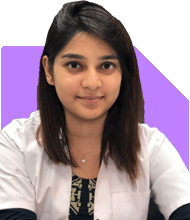Ramalingam Kalirajan |9854 Answers |Ask -Follow
Mutual Funds, Financial Planning Expert - Answered on Nov 04, 2024
He has an MBA in finance from the University of Madras and is a certified financial planner.
He is the director and chief financial planner at Holistic Investment, a Chennai-based firm that offers financial planning and wealth management advice.... more

I just turned 25 and I had always been interested in finance. I learned through years of content watching and reading that starting investment at my age would prove to be beneficial for my retirement. Currently my income is 50k/month of which my spends are 10k/month. I live alone. How should I start or plan for my retirement in 30 years ( then age 55 years)? Advice would be much appreciated.
Building Your Investment Foundation
With 40,000 rupees available each month, you’re well-positioned to build a diversified portfolio. A steady, strategic plan will help create a robust retirement corpus by age 55.
Allocate Funds Wisely
A diversified approach will allow you to balance growth and stability. Here’s a suggested allocation to optimise your wealth over time:
Equity Mutual Funds (60%): Equities can generate significant long-term returns and beat inflation. Invest in a mix of large-cap, mid-cap, and small-cap funds. Diversifying across these helps balance risk and reward.
Debt Mutual Funds (20%): Debt funds provide stability and mitigate risk, especially during market downturns. They are an essential counterbalance to equities, offering steady growth with reduced volatility.
Gold and Precious Metals (5-10%): Metals add a layer of security to your portfolio. Gold has a track record of maintaining value and serves as a hedge during economic uncertainties.
Multi-Asset Funds (5%): These funds spread investments across equities, debt, and sometimes commodities, offering diversified returns. Multi-asset funds offer moderate growth with managed risk, making them a beneficial addition.
Cash Reserves or Emergency Fund (5-10%): Setting aside funds for emergencies is crucial. Keep at least six months’ expenses in a savings account or liquid fund to handle unexpected costs without disrupting your investments.
Benefits of Choosing Actively Managed Funds
While index funds track the market, they lack the potential for outperformance. Actively managed funds can potentially generate higher returns by adjusting to market conditions. Fund managers in actively managed funds can identify growth opportunities and mitigate risks. This active approach is especially useful over a 30-year horizon, where adapting to changing economic conditions is essential.
Importance of Regular Funds
Direct funds may seem economical, but regular funds offer key benefits when investing through a certified professional. A Certified Financial Planner (CFP) can help with fund selection, performance tracking, and rebalancing, aligning your investments with your retirement goals. This guidance can optimize your returns over time, making regular funds a valuable choice.
Tax Efficiency and Retirement Planning
Understanding tax implications is vital for effective retirement planning. Here’s how taxes apply to mutual funds:
Equity Funds: Long-term capital gains (LTCG) above Rs. 1.25 lakh are taxed at 12.5%. Short-term capital gains (STCG) are taxed at 20%. Investing in equity mutual funds aligns with tax efficiency, as gains accumulate over the long term.
Debt Funds: LTCG and STCG in debt funds are taxed according to your income tax slab. Since your income may rise over the years, consider the tax impact and invest with a view to minimize taxable events.
Tax-efficient investing and strategic withdrawals will help protect your wealth from tax erosion, especially closer to retirement.
Systematic Investment Plan (SIP): The Power of Consistency
Initiating SIPs is an effective way to build wealth. By investing consistently, you benefit from rupee-cost averaging, which reduces the impact of market volatility. Additionally, disciplined SIPs cultivate financial habits, helping you stay committed to your retirement goals.
Portfolio Review and Rebalancing
Conduct an annual review to ensure your portfolio remains aligned with your goals. As you approach retirement, gradually increase your allocation to debt and safer assets to preserve your gains. Rebalancing allows for adjustments based on market performance, economic shifts, and personal financial changes.
Steps to Establish Your Retirement Strategy
Set Clear Goals: Define your retirement lifestyle expectations and desired monthly income at age 55. This will help calculate a realistic corpus goal.
Invest Monthly: Allocate 60% of your savings towards SIPs in growth-oriented funds, with a preference for actively managed equity funds.
Build an Emergency Fund: Keep six months’ expenses as cash reserves to avoid dipping into your investments during emergencies.
Monitor and Adjust: Review your portfolio annually and consult a Certified Financial Planner (CFP) for expert advice. Adjust your allocations as needed.
Stay Consistent: Keep up with your SIPs and make incremental increases when possible to boost your long-term growth.
Explore Goal-Based Investments: If you have intermediate goals like buying a home, consider separate investments for those needs, keeping your retirement portfolio dedicated to long-term growth.
Final Insights
You’ve made a smart decision by beginning your retirement planning early. With disciplined investing and strategic allocation, you can build a substantial retirement corpus by age 55. Focusing on growth while balancing risk will ensure that you’re prepared for a comfortable retirement.
Best Regards,
K. Ramalingam, MBA, CFP,
Chief Financial Planner,
www.holisticinvestment.in
https://www.youtube.com/@HolisticInvestment
You may like to see similar questions and answers below
Ramalingam Kalirajan |9854 Answers |Ask -Follow
Mutual Funds, Financial Planning Expert - Answered on May 23, 2024
Ramalingam Kalirajan |9854 Answers |Ask -Follow
Mutual Funds, Financial Planning Expert - Answered on Jul 09, 2024
Ramalingam Kalirajan |9854 Answers |Ask -Follow
Mutual Funds, Financial Planning Expert - Answered on Jan 20, 2025
Radheshyam Zanwar |5853 Answers |Ask -Follow
MHT-CET, IIT-JEE, NEET-UG Expert - Answered on Jul 27, 2025
Radheshyam Zanwar |5853 Answers |Ask -Follow
MHT-CET, IIT-JEE, NEET-UG Expert - Answered on Jul 27, 2025
Radheshyam Zanwar |5853 Answers |Ask -Follow
MHT-CET, IIT-JEE, NEET-UG Expert - Answered on Jul 27, 2025
Radheshyam Zanwar |5853 Answers |Ask -Follow
MHT-CET, IIT-JEE, NEET-UG Expert - Answered on Jul 27, 2025
Radheshyam Zanwar |5853 Answers |Ask -Follow
MHT-CET, IIT-JEE, NEET-UG Expert - Answered on Jul 27, 2025
Rebecca Pinto |112 Answers |Ask -Follow
Physiotherapist, Nutritionist - Answered on Jul 27, 2025
Rebecca Pinto |112 Answers |Ask -Follow
Physiotherapist, Nutritionist - Answered on Jul 27, 2025
Rebecca Pinto |112 Answers |Ask -Follow
Physiotherapist, Nutritionist - Answered on Jul 27, 2025
Rebecca Pinto |112 Answers |Ask -Follow
Physiotherapist, Nutritionist - Answered on Jul 27, 2025
Rebecca Pinto |112 Answers |Ask -Follow
Physiotherapist, Nutritionist - Answered on Jul 27, 2025






















